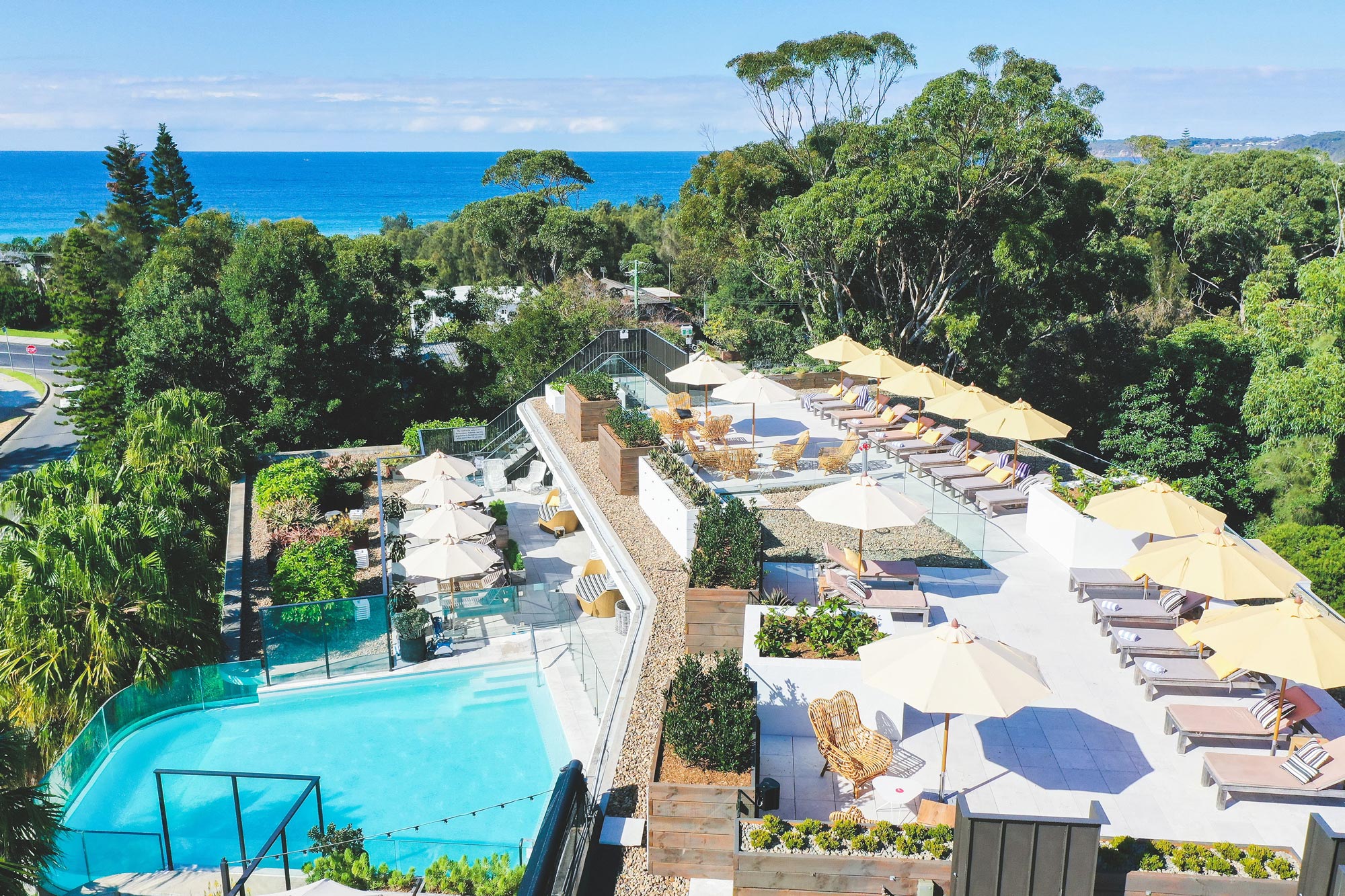Busy hospitality fund manager Salter Brothers has bolstered its portfolio of boutique country lodges and luxury coastal retreats after snapping up three Bannisters hotels in Mollymook and Port Stephens on the NSW South and North Coast for over $100 million.
The acquisitions include two famous seafood restaurants in Mollymook and Port Stephens, which are operated by celebrity UK chef Rick Stein within the hotel complexes alongside a number of pubs, bars and spas.
It comes as Salter Brothers works on plans to potentially float a separate $2 billion portfolio of mostly IHG-operated CBD hotels including properties such as the five-star Intercontinental Rialto Melbourne, Crowne Plaza Coogee and voco Gold Coast.

The fund manager will add the three Bannisters hotels to its unlisted Hospitality Retreat Fund, which currently houses 13 properties and 407 guest rooms including six Spicers Retreats resorts (and the Spicers Retreats brand), which were acquired in 2022 for about $130 million from Flight Centre co-founder Graham Turner and his wife, Jude.
Other properties in the fund include Bowral’s Milton Park Country House & Spa in the NSW Southern Highlands (acquired for about $20 million last year), Echoes Boutique Hotel Blue Mountain and The Convent Hunter Valley Luxury Boutique Hotel.
The Bannisters properties comprise the 34-room hotel, Bannisters by the Sea and the 33-room establishment, Bannisters Pavilion, in Mollymook, about a three-hour drive south of Sydney, as well as Bannisters Port Stephens, which has 78 guest rooms, just north of Newcastle and about two hours from Sydney.
Bannisters was founded in 2003 by media entrepreneur Peter Cosgrove (the former chairman of HT&E Limited, which rebranded as ARN Media last year) when he opened his first hotel, Bannisters by the Sea, in Mollymook after renovating an old motel.
In 2009, he put Bannisters and the quiet coastal village of Mollymook on the culinary map after he enticed Rick Stein to open his first restaurant outside the UK at the hotel.
Bannisters Pavilion opened just down the road in 2015 and in 2018 Mr Cosgrove opened Bannisters Port Stephens in what was previously the Salamander Motel.
Through various entities, Mr Cosgrove owns the two Mollymook hotels, while ownership of the Port Stephens hotel is split three ways between Mr Cosgrove, and Sydney real estate agents Chris Herbert and Niall Chang, directors of Richardson & Wrench Bondi Junction.
Salter Brothers managing director Paul Salter said the three hotels were great assets in stunning locations that would leverage off the Bannisters brand and tap into the “drive market” – sought-after coastal and country locations within two to three hours of a major CBD.
“The drive market is what we are targeting [for this fund],” Mr Salter said.
“These hotels trade in the high 90 per cent occupancy range, sometimes even at 100 per cent. They are great assets that trade really well. They are popular as romantic getaways, for staycations and for weddings and events.”
Mr Salter declined to comment on the price paid for the Bannisters hotels or the firm’s mooted IPO of its CBD hotels.
Well-placed sources indicated that the three hotels sold for more than $100 million.
Once the deal settles by the end of the year, Salter Brothers Hospitality will manage the three hotels, with the support of the existing Bannisters’ team of 150 full-time staff.
The off-market deal was negotiated by Savills (on behalf of the vendor) alongside MinterEllison, consultants Napier & Blakeley and Ernst & Young.
“Bannisters has become an icon of Australian boutique hotels, and I’m thrilled to see our brand’s growth under Salter Brothers Hospitality,” said Alice O’Hara, CEO of Bannisters Hotels.
“There are exciting opportunities ahead, and we are united in our commitment to exceptional hospitality. When our guests return, they’ll be greeted by the familiar faces and unforgettable experiences they love.”
Incoming owner Salter Brothers has $4 billion of assets under management including more than 40 hotels. Its other investments span property development, private credit, immigration investment and technology.

